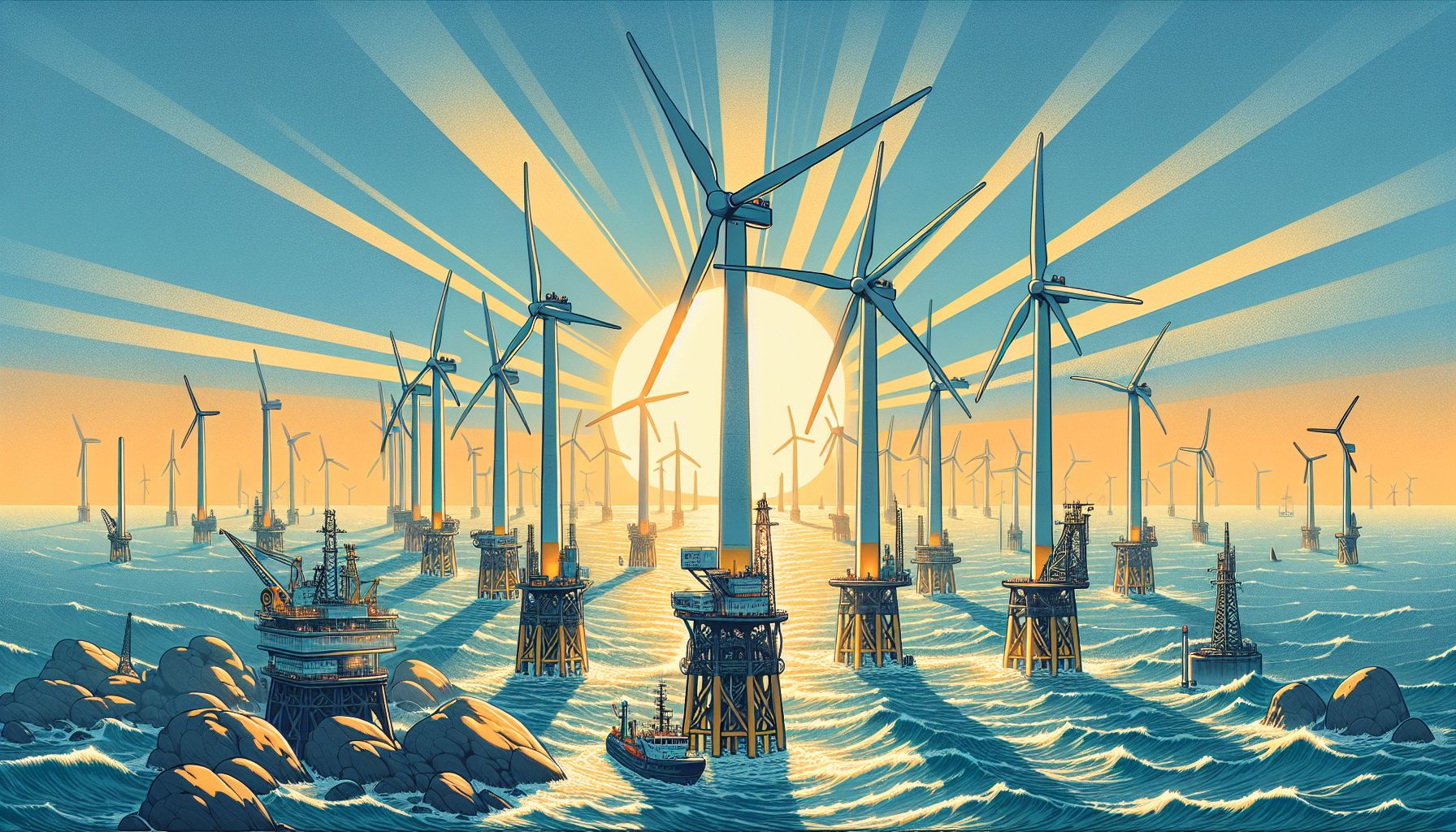Dutch Energy Transition Accelerates with Ambitious Offshore Wind Plans

The Hague, Wednesday, 9 October 2024.
The Netherlands is ramping up its renewable energy efforts, with a focus on offshore wind power. The government aims to increase renewable energy share from 17% in 2023 to 27-42% by 2030, targeting 50 GW of offshore wind capacity by 2040. Recent tenders for large-scale wind farms in the North Sea highlight the country’s commitment to clean energy, as it phases out natural gas extraction and addresses grid congestion challenges.
Introduction to the Energyhub Guide
On 9 October 2024, the Rijksdienst voor Ondernemend Nederland (RVO) unveiled a new guide dedicated to the development of energy hubs across the Netherlands. This initiative seeks to harmonize local energy production with consumption, thereby reducing the stress on the national electricity grid. The guide provides strategic insights for provinces to foster local collaborations among municipalities, grid operators, and regional development companies.
Strategic Importance of Energy Hubs
Energy hubs are designed to optimize and share sustainable energy by facilitating cooperation between local energy users and producers. The Dutch government has committed €166 million to the Stimuleringsprogramma energiehubs, with 85% of this budget earmarked for regional development and 15% for knowledge sharing. These hubs play a crucial role in minimizing network congestion by aligning local energy production with consumption, thus contributing significantly to housing, mobility, and sustainability goals.
Collaborative Efforts and Future Goals
The energyhub guide, formulated in collaboration with the Ministry of Climate and Green Growth, Interprovincial Consultation, Association of Dutch Municipalities, and Network Management Netherlands, aims to support energy initiatives. RVO’s role is pivotal in promoting cooperation among organizations and facilitating monthly knowledge-sharing meetings. The overarching goal is to make Europe climate neutral by 2050, necessitating a shift from fossil fuels to renewable energy sources in the Netherlands.
Offshore Wind Energy: A Parallel Drive
In a parallel effort, the Netherlands is advancing its offshore wind initiatives. The government targets 50 GW of offshore wind capacity by 2040 and 70 GW by 2050, prioritizing offshore over land-based projects due to social and environmental considerations. This strategic focus is underscored by the recent award of tenders for large wind farms in the North Sea, which are set to bolster the country’s renewable energy output significantly.
Overcoming Challenges and Looking Ahead
Despite these ambitious plans, the Netherlands faces challenges such as grid congestion and the need for a comprehensive legal framework for hydrogen by 2031. The government is actively working on solutions, including the National Grid Congestion Action Programme. These efforts are crucial to achieving the country’s renewable energy targets and ensuring a sustainable energy future.

